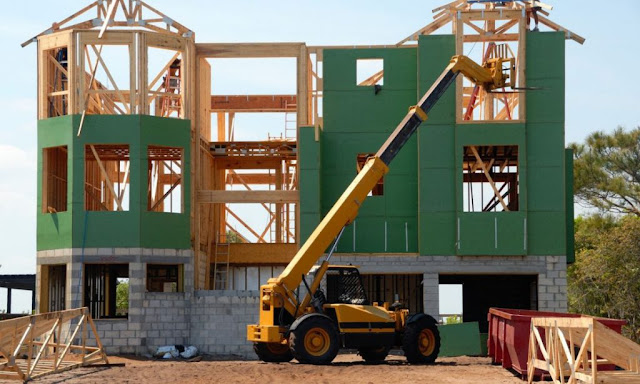Why Hire a General Contractor - What is the Difference Between a General Contractor and a Contractor?
All building projects have the same goal: to bring a vision to life. The project could range from a simple facility upgrade to the construction of a sizeable multistory structure. If there is one thing that business owners must grasp, projects require a team of people to complete. The completion of the project lies with a general contractor. Why Hire a General Contractor
explains the difference between a general contractor and a contractor and, as well as the responsibilities of employing the first one.
The Differences Between a General Contractor and a Contractor
What is the definition of a General Contractor?
A general contractor is in charge of supervising and managing a team of subcontractors. He's the one to call if you need advice on anything related to the entire construction project. He leads his team and assigns jobs to various aspects of the construction project. The general contractor, sometimes known as the main contractor, is the focal point or point of contact for the entire construction project. He is responsible for the following:
● Overseer of the site's day-to-day operations
● They organize communication, trade, and vendor relationships.
● They collaborate with a client-hired engineer or architect.
● When it comes to proposals and bids, it makes paperwork easier.
● Provides project cost estimates that include all parts of the work.
● They are in charge of quality assurance.
● Ensures that all components of the project are safe.
● Manages construction site staff and conducts site surveys and obtaining building permits
● Cash flow records and budgeting is essential to keep track of.
Because of the breadth of projects handled by the general contractor, he has developed great abilities and expertise in project management. This demonstrates the importance of a general contractor being clever and having a positive working relationship with dependable and efficient contractors. When selecting a general contractor, look for a strong working portfolio that includes all of his completed projects, favorable client feedback, and fair contract package rates. Finally, a general contractor should be on-site at all times, preferably daily, to keep tabs on what is going there; What are General Contractor Services explains.
What is the definition of a contractor?
To be clear, a building contractor is not the same as a builder. Without the term "contractor,” the builder is in charge of facilitating the home or building construction of the house or building. A builder constructs a home, including the foundation, framing, and roofing. On the other hand, a 'contractor,' on the other hand, complete the building project, including several parts of construction.
Contractors are divided into two categories: residential and commercial. The primary responsibilities of a residential contractor are to supervise the construction of residential residences of all types, including row houses, detached homes, and so on. Commercial contractors, on the other hand, work on construction projects for businesses. A building contractor, for example, assumes all direct employment of workers participating in a construction project (e.g., a residential house) and accepts contracts that are substantially necessary for the construction activity; Why Hire a General Contractor explains further.
In finality: Now, What is the Difference Between a General Contractor and a Contractor?
Knowing the disparities between them (and as it has been mentioned above) will yield you a sound decision on whom to employ for whatever projects you may have soon.
Interested To Know More? Connect With Us!
The advantages of choosing a general contractor include the ability to execute building projects quickly. Why Hire a General Contractor is more than willing to work on whatever project you have in mind. Barrie Home Renos are committed to completing customer tasks in a timely and effective manner as a group.


Comments
Post a Comment